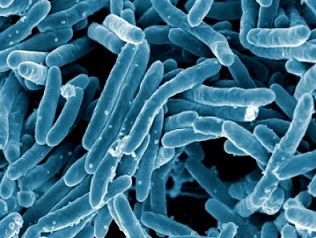BREAKING Medical News! Denmark Discovers New Bacterial Species Called Mycoplasma Phocimorsus That Causes Hand Infections!
Nikhil Prasad Fact checked by:Thailand Medical News Team Dec 01, 2023 1 year, 4 months, 2 weeks, 3 days, 12 hours, 35 minutes ago
Medical News: In a groundbreaking turn of events, researchers from Denmark's renowned Statens Serum Institut (SSI) have unveiled a compelling discovery that promises to reshape our understanding of hand infections stemming from contact with seals. According to latest
Medical News updates from the SSI, the newly identified bacterial species, named Mycoplasma phocimorsus, has emerged as the elusive culprit behind severe hand infections, long recognized among hunters and fishermen who handle seals.
https://en.ssi.dk/news/news/2023/a-new-bacterial-species

This new discovery, marking a significant milestone in medical research, comes on the heels of an exhaustive study conducted by the SSI team. Their study findings, published in the International Journal of Systematic and Evolutionary Microbiology, shed light on the unique properties of Mycoplasma phocimorsus and its implications for diagnosis and treatment.
https://www.microbiologyresearch.org/content/journal/ijsem/10.1099/ijsem.0.006163
Seal finger, also known as sealer's finger or spekk finger, has long been associated with another mycoplasma species, Mycoplasma phocacerebrale. However, the recent study spanning from 2000 to 2014 uncovered six independent strains of a previously unknown mycoplasma species at Statens Serum Institut, isolated from Scandinavian patients experiencing seal finger or septic arthritis.
Notably, all patients had reported direct contact with seals before the onset of infection.
The characteristics of Mycoplasma phocimorsus paint a nuanced picture of its behavior and impact. The bacterium, not amenable to growth on standard bacterial culture media, defies categorization within previously described mycoplasma species from either humans or animals. Its resilience against common antibiotic treatments like penicillins adds a layer of complexity to the challenges associated with seal-related hand infections.
To combat this medical mystery, the SSI researchers successfully isolated Mycoplasma phocimorsus from samples obtained from patients in Denmark, Norway, and Sweden over an extended period. The arduous process of identification involved overcoming the bacterium's resistance to standard growth conditions, underscoring the uniqueness of this newly discovered species.
The implications of this discovery extend beyond mere identification. The researchers demonstrated that Mycoplasma phocimorsus responds favorably to antibiotics other than penicillins, opening doors to more targeted and effective treatment strategies. This revelation holds the promise of reducing complications, including the potential for decreased hand and arm mobility - a significant concern in cases of severe hand infections.
In addition to the antibiotic susceptibility profile, the researchers provided a detailed account of the genomic characteristics of Mycoplasma phocimorsus. The strains' genome sequences ranged from 744,321 to 772,409&thinsp
;bp, with a G+C content of 25.0–25.2 mol%. This genomic insight, coupled with phylogenetic analyses using 16S rRNA gene sequences and core genome single nucleotide polymorphisms, positioned Mycoplasma phocimorsus as a distinct species within the genus Mycoplasma.
The proposed nomenclature for this novel species is Mycoplasma phocimorsus sp. nov., with the first isolate M5725T (NCTC 14922T=DSM 116188T) identified as the proposed type strain. Representative strains M6447, M6620, M6642, M6879, and M6921 further validate the unique characteristics of this emerging bacterial species.
As Denmark celebrates this milestone in medical research, the global scientific community takes note of the significance of understanding and combating emerging infectious threats. Mycoplasma phocimorsus now joins the ranks of medically significant bacteria, emphasizing the imperative for ongoing research and collaboration to ensure the effective management of infectious diseases in an ever-evolving landscape.
For the latest
Medical News, keep on logging to Thailand Medical News.
